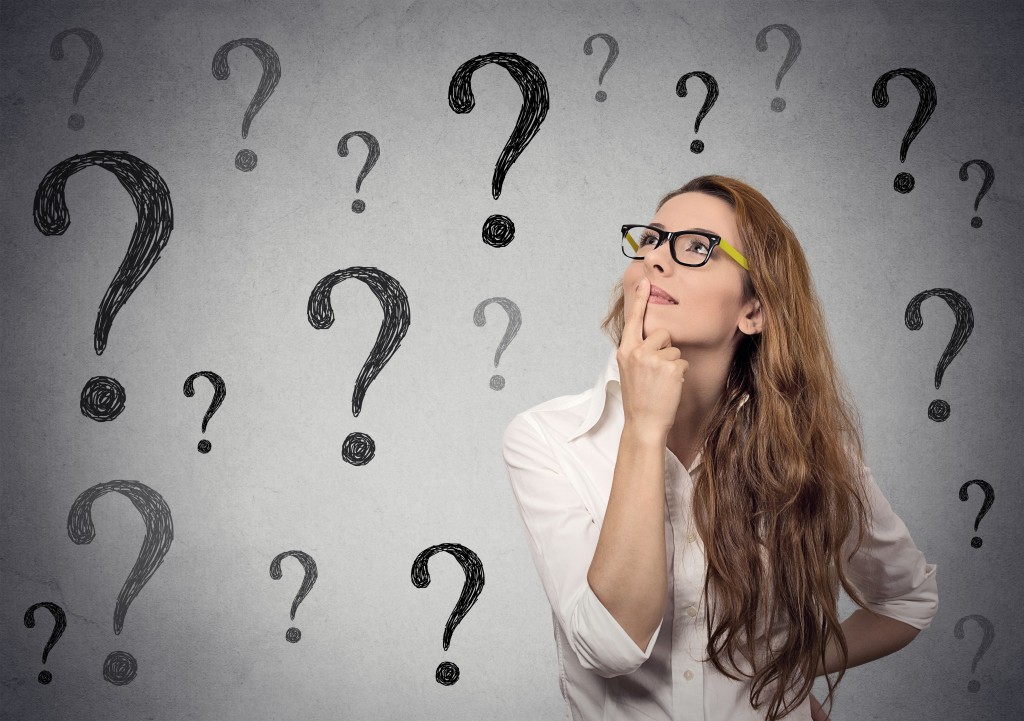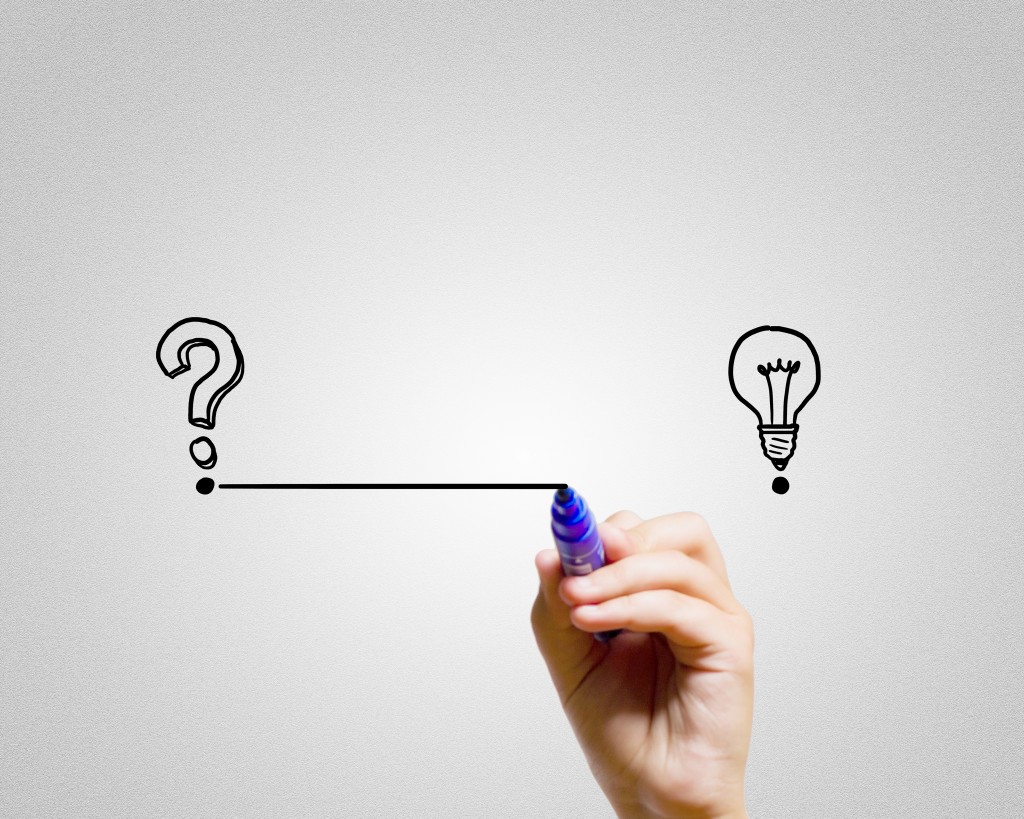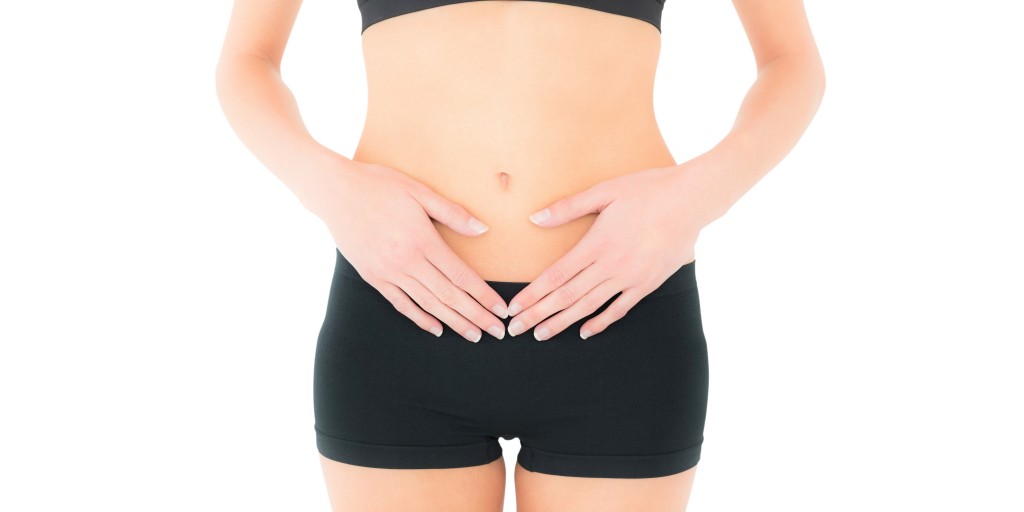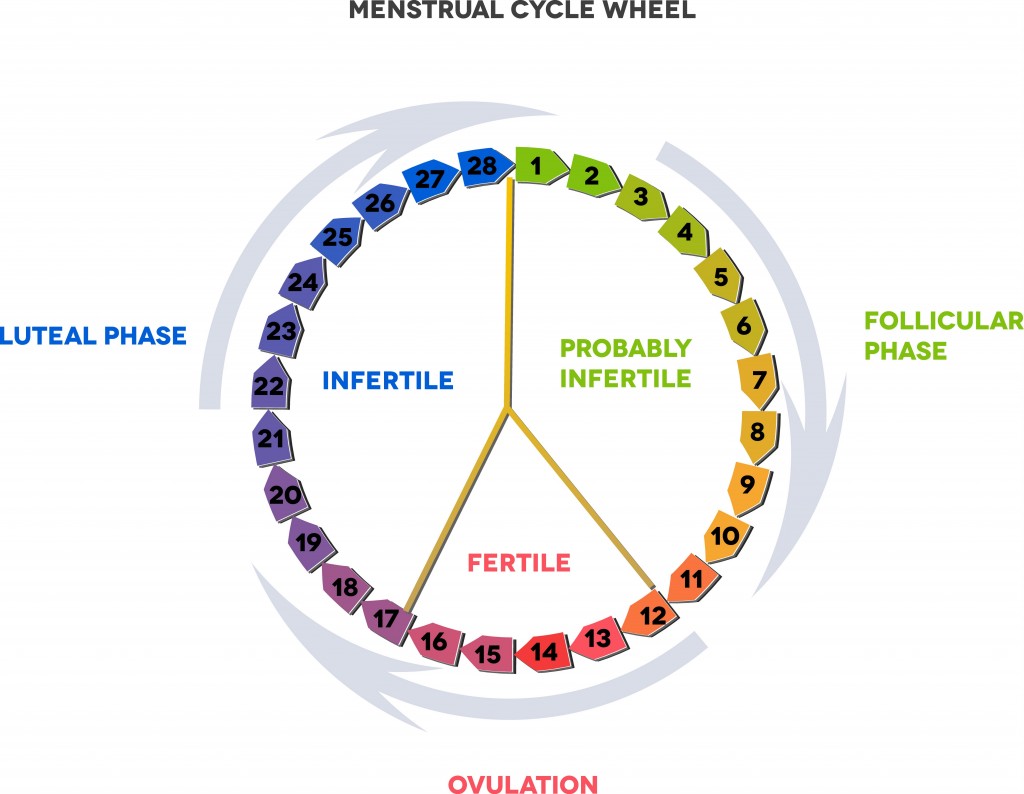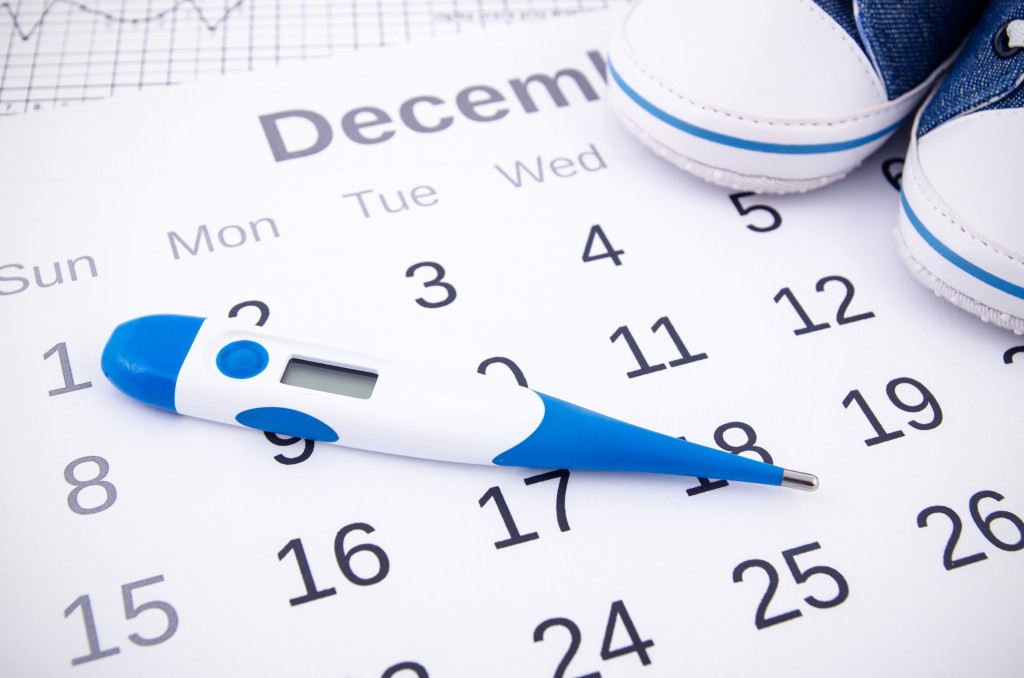If you’ve ever wondered how many days after your period do you ovulate, then you should know that there’s no one answer for this question. Several factors, including the regularity and length of your menstrual cycle, influence the time when ovulation occurs. Consequently, many women find themselves concerned when they start experiencing certain symptoms that don’t seem quite normal, such as increased vaginal discharge, stomach cramps and breast tenderness.
What’s the truth about ovulation, and how many days before your period do you ovulate? We’ve compiled a material with questions and answers from our expert.
1. How Many Days After Your Period Do You Ovulate?
Hello,
I’ve been trying to get pregnant for a while now, but haven’t been successful. Since my husband is away until 8 pm, we rarely have any time for sex, and when we do, he’s usually very tired. My ob-gyn told me I’m perfectly healthy and fertile, and instructed me to have sex when I ovulate. The point is, I don’t know when I ovulate, and I was too embarrassed to ask her this. I’m 29 years old and I probably am supposed to know that, but I just don’t.
How many days after period starts do you ovulate? Also, are there any specific symptoms I can expect? What if I have one or two days before ovulation? Is there any chance I’ll get pregnant that way?
Expert Answers:
The key to getting pregnant is hopping into bed when you’re the most fertile – and ovulation is the most fertile phase of your menstrual cycle. It’s no shame not to know when you ovulate. Many women don’t until they start trying to conceive. If your doctor says you can have babies, then she probably knows better.
Ovulation is when your ovary releases one or more eggs. Each month, your ovaries start developing fluid-filled pockets known as follicles, which contain 15 to 20 eggs that mature. Around the middle of your menstrual cycle, the follicle with the ripest egg bursts, releasing it. The egg is swept into one of your fallopian tubes, which connect the vagina to the uterus.
The egg can survive in the fallopian tube up to 24 hours. The fallopian tube is where the egg unites with your partner’s sperm cells. If fertilization doesn’t occur, the egg ‘dies’ and is expelled from your body along with your endometrium (tissue lining the interior of your womb) during your next period. If the egg is not fertilized, you’ll have to wait until you ovulate next time before you can try getting pregnant again.
Remember that ovulation occurs at the end of your fertile window between periods. Your fertile window usually starts around 5-6 days before you ovulate. That’s because sperm cells can happily live in your vagina or fallopian tubes up to 5-6, sometimes even 7 days, so they may be hanging around when you ovulate, ready to fertilize the egg.
As for the symptoms of ovulation, you can expect ovulation pain (mittelschmerz), stomach cramps, breast tenderness, increased basal body temperature, heavy vaginal discharge (egg white cervical mucus) and spotting. You may experience some of these symptoms, or you may not experience any. Or, you can have some symptoms this month, and no symptom the next.
2. How Many Days After Ovulation Can You Get Pregnant?
I was wondering if I have a higher chance of conceiving if I also have sex after ovulation? I’m trying to get pregnant, and have baby-making sex between the time my period ends and ovulation, but so far this hasn’t helped. Could you please advise me? Also, does egg white vaginal discharge means I’m fertile? I read somewhere that you’re in your fertile window if you start experiencing such discharge.
Expert Answers:
To cut a long story short – no, you can’t get pregnant after you ovulate. To get pregnant, a sperm cell needs to fertilize an egg, and if there’s no egg to fertilize, then you can’t conceive. An egg can survive up to 24 hours in your fallopian tube, and it dies within that time if it doesn’t unite with a viable sperm cell. However, you may get pregnant if you have sex before you ovulate, as sperm cells can survive for several days in your system, and fertilize the egg once it’s released.
The best time to have baby-making sex is between the day your period ends and the day you ovulate, so you’re doing a great job so far. It may take some time until one of your egg is fertilized, but don’t worry. If your menstrual cycle is regular, it means that you ovulate regularly, and so you’re fertile and can get pregnant.
As for the egg white vaginal discharge you’re seeing, yes, it means you’re very fertile and have a higher chance of conceiving if you have sex. This type of discharge allows the sperm cell to travel and unite with your egg, thus facilitating fertilization. During the first 2-3 days after your period stops, your discharge will be whitish, dry and clumpy, preventing any sperm cells from entering the fallopian tubes. It becomes gradually thinner and more slippery as you enter your fertile window, which is typically about 5-6 days before you ovulate.
If you notice such discharge during the middle of your menstrual cycle, then it’s time to hop into bed and start having baby-making sex!
3. How Many Days A Month Do You Ovulate?
Hi,
I’ve been experiencing some weird symptoms over the past few weeks. I wake up with some horrendous stomach cramps, and they don’t go away until the middle of the day (e.g. 1 or 2 pm). I feel nauseated right after I get up. I haven’t thrown up yet, but every day I think I will. There’s also this weird fluid from my vagina. It’s viscous, and looks very much like uncooked egg white. It doesn’t smell bad or anything, but it makes me really self-aware!
Do you think I may be pregnant? I’ve had sex on the 17th day of my menstrual cycle. I usually ovulate on the 15th day, and my periods always come every 30 days. Perhaps I ovulated later? How long does ovulation last?
Expert Answers:
The symptoms you’re describing sound like you may be pregnant, especially since you’ve been having them for a few weeks already. Normally, you can’t get pregnant after you ovulate, as the egg survives in the fallopian tube no longer than 24 hours after it’s been released. If there’s no egg to fertilize, you can’t get pregnant.
If your menstrual cycle is regular, it means that you ovulate regularly. However, it doesn’t mean that you ovulate on the exact same day of your menstrual cycle every month. You can ovulate on the 15th day this month, on the 14th the next, and on the 16th the next one. So there’s a slight chance that you ovulated a bit later than predicted. If you ovulated on the 16th day, and had sex within 24 hours after the egg has been released, then there’s a very good chance that that it’s been fertilized, and you got pregnant.
Have you had any sex about 5-6 days before you ovulated? If so, then there’s a chance you might have gotten pregnant, as sperm cells are viable up to 5-6 days, so they may be just ready to unite with your egg once it’s released. You might have thought that you got pregnant the last time you had sex, on the 17th day of your menstrual cycle and 1-2 days after you ovulated, when in fact it was the time before you ovulated, even if you weren’t technically ovulating at that time.
Or, you could have simply forgotten when you were due to ovulate, and thought it was sooner than in actuality. That means you could have had sex within that 24-hour time frame, and thought you already ovulated, so there wasn’t any chance to get pregnant.
Consider keeping a calendar to keep track of your menstrual cycles and approximate date when you should ovulate. This will help accidentally forgetting dates. As for the pregnancy symptoms you’re experiencing, wait for your next period, and if it doesn’t come, take a pregnancy test. Regardless of the result you get, confirm or infirm it with a blood test, as they’re usually the most accurate.
4. How Many Days Do You Ovulate Before Your Period?
I’ve been on birth control for one year now, but since my doctor told me it isn’t a 100% guaranteed way to avoid getting pregnant, I’ve started becoming concerned that I may still conceive anyway. I know I should avoid having sex around the middle of my menstrual cycle, but I’m not sure how many days before your period do you ovulate? I have a 32-day menstrual cycle, and it’s pretty regular. If I have sex within 8-10 days before my period comes, it may arrive a few days later.
Expert Answers:
While it’s true that no birth control method is 100% guaranteed to prevent pregnancy, the chance to get pregnant is significantly lower. It’s good that you’re avoiding having sex during your fertile window, as this will reduce any possibility to conceive to a minimum. If any sperm cells slip in there, and your egg is ready to be fertilized, then that will probably happen.
Ovulation occurs about 12-14 days before your next scheduled period. If you have a 28-day menstrual cycle, then you’ll ovulate on the 14th or 16th day. If you have a shorter menstrual cycle of, say, 25 days, you will ovulate on the 11th or 13th day. You have a 32-day menstrual cycle, so you’re probably ovulating between the 18th and 20th day.
However, keep in mind that the day you ovulate is the last day of your fertile window, which begins about 5-6 days before ovulation. That’s because sperm cells live up to 5-6 days in your system, so if you have sex within 5-6 days before you ovulate, fertilization may occur. You can have sex while on your period, and at least one day after you’ve ovulated, just to make sure there’s really no chance to conceive.
Many women get their period later if they have sex about 9-7 days, or sooner, before its due date. I’d stay away from any sexual contact during that time to avoid disrupting the regularity of your menstrual cycle.
5. How Many Days Before Ovulation Can You Conceive?
I’m trying to get pregnant, but, unfortunately, my period is irregular. Sometimes my menstrual cycle lasts as long as 30 days, and sometimes as little as 24 or 25 days. I’m having a really hard time predicting when I ovulate. How many days before ovulation can you conceive? Or better, how many days after period starts can you conceive?
Expert Answers:
Irregular menstrual cycles are common, so don’t worry. If you’re particularly stressed or have problems with your hormone balance, then you will want to check with a specialist to see what you can do to make it become regular.
You’re in your fertile window about 1-2 days after your period stops. You can start having sex every other day from that date, and you’ll dramatically boost your chances to get pregnant. Studies have shown that couples who have sex every other day are just as likely to get pregnant as couples who have sex every day.
You can try to identify when you’re going to ovulate by measuring your basal body temperature every day. When you’re about to ovulate, the temperature will increase by one degree as a result of spikes in progesterone levels. So if your normal temperature is 36°C (96°F), then your temperature when you ovulate will be 37°C (98°F). Breast tenderness and stomach cramps may also be present. The best indicator will be your vaginal discharge: the more slippery, clear and watery it is, the more fertile you are. You’ll notice that it evolves from white and dry to clear and thin as ovulation approaches.


